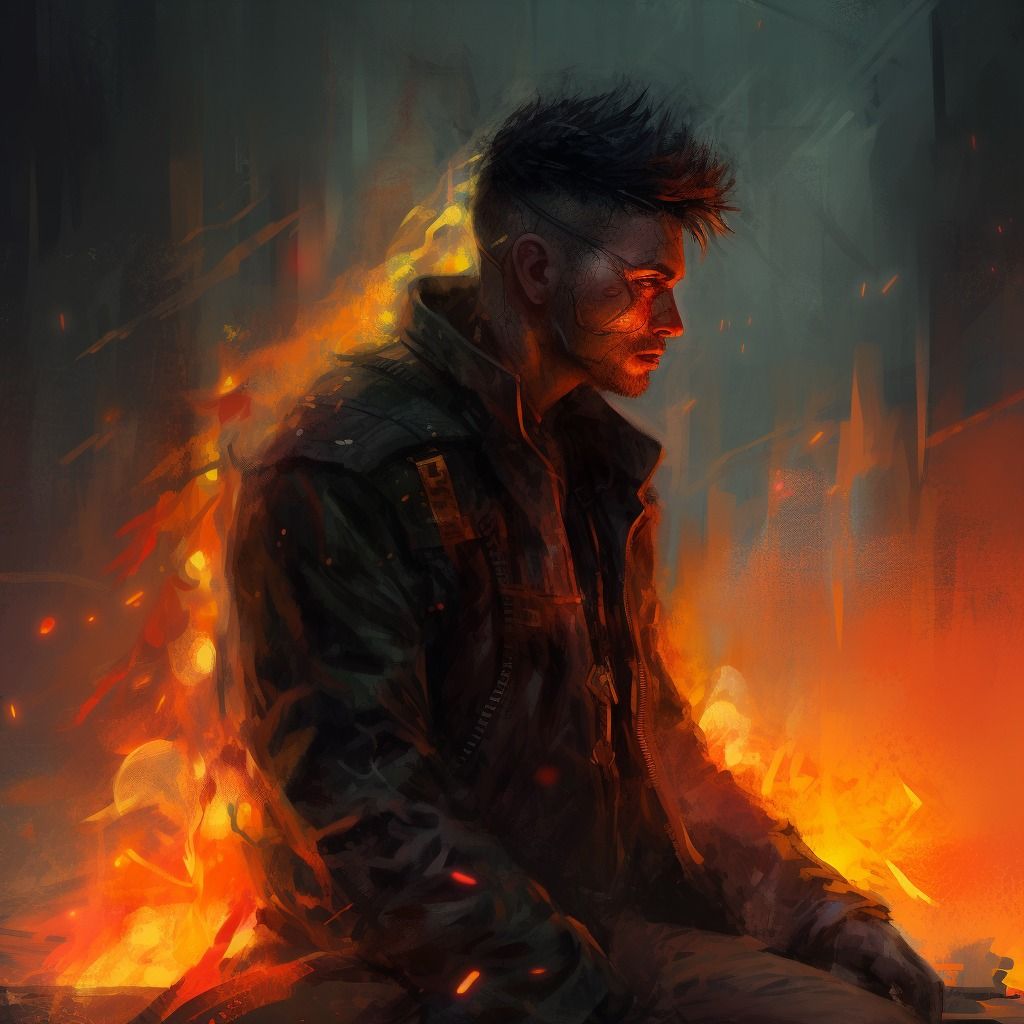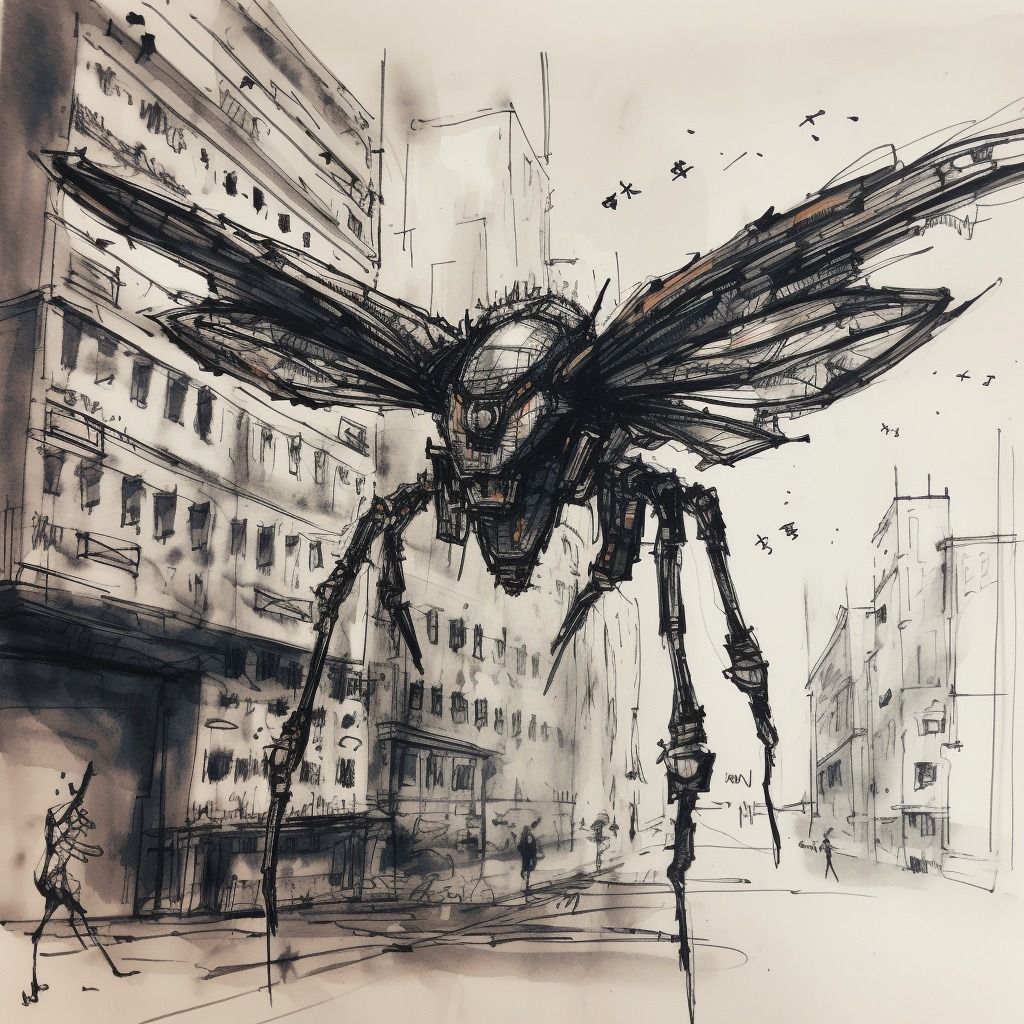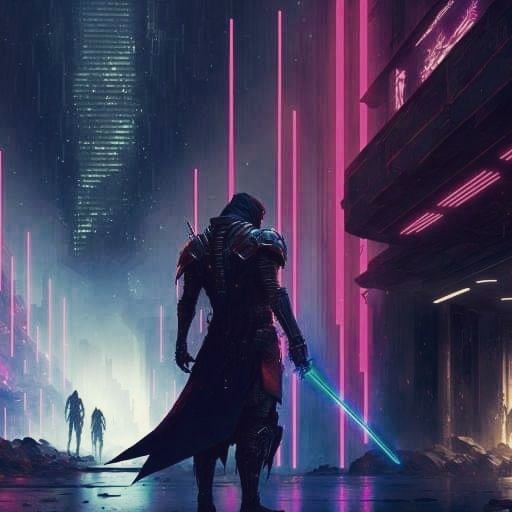Cyberpunk: On social and cultural meaning of a literary movement

The fictional genre known as cyberpunk has deep political and cultural roots, with great authors such as William Gibson and Neal Stephenson shaping its development and success. 'Cyberpunk is a comet that has passed through the skies of speculative fiction and exploded in its heyday. We will long sail through its bright debris' (Morte e trasfigurazione del cyberpunk, su LN – Libri Nuovi, 1996-2002).
The word cyberpunk was coined by writer Bruce Bethke, who wrote a story with that title in 1982. He derived the term from the words cybernetics, the science of replacing human functions with computerized ones, and punk, the cacophonous music and nihilistic sensibility that developed in the youth culture during the 1970s and ’80s. Science-fiction editor Gardner Dozois is generally credited with having popularized the term. [here]
The Science of Possibility and the Willingness to Expose the Risks of Hyperinformation
Is cyberpunk a science-fiction subgenre characterized by countercultural antiheroes trapped in a dehumanized, high-tech future? Or are cyberpunk and Science Fiction more deeply related? Or maybe are different things? The link lies in the interpretation of meaning as a 'coherent extrapolation of the effects of a technological novelty, i.e., an element introduced into known reality that alters the perception of that reality by its subjects and, at the same time, profoundly transforms the way a given society understands itself and regulates itself.' It is the sense of the possible that unites the two genres, which in cyberpunk becomes - often in terms of charismatic denunciation - the commercialization of virtual reality, developments in genetic engineering and, above all, the possibility of monopolistic control of the information, what Gibson calls the tentacles of the big corporations.

The question of the information
In cyberpunk vision, communication is the 'immeasurable amount of information, data, projects, articles, and reflections that pass daily. The epiphenomenon, the conspicuous and useless aspect of this, as of other epochal events, are the inevitable frivolous little articles of opinion weeklies, while the silicon and germanium reality are the billions of terabytes of information that must circulate, on pain of delay and paralysis of production.' This is the point: Data has value, information - even and especially personal information - has value, privacy is the enemy of production. This is why it is possible to define 'science fiction as the literature of the possible,' while cyberpunk is 'the literature of invasion'.
Remaining human
Cyberpunk, with its depiction of a dystopian future in which technology has a pervasive effect on society, raises important social and cultural issues. It often reflects the concerns of the time in which it was created, highlighting the growing influence of corporations, loss of privacy, social inequality, and human alienation, as well as the complexity of the relationship between the individual and technology. It often focuses on the idea that while technology offers new possibilities, it can also crush the individual under the weight of control and manipulation. The genre warns of the potential dehumanization that can result from a society too dependent on technology.

Reading tips to get a better understanding of the cyberpunk genre
- Neuromancer by William Gibson (Novel) Published in 1984, "Neuromancer" is one of the pioneering works in the cyberpunk genre. It follows the story of Case, a washed-up computer hacker, who gets involved in a dangerous heist involving powerful artificial intelligence and cyberspace.
- Snow Crash by Neal Stephenson (Novel) Released in 1992, "Snow Crash" is a cyberpunk novel set in a future America. It combines elements of virtual reality, hacking, and a dystopian society. The protagonist, Hiro Protagonist, is a hacker and a pizza delivery driver in the Metaverse, a virtual reality universe.
- Do Androids Dream of Electric Sheep? by Philip K. Dick (Novel) Originally published in 1968, this novel inspired the movie "Blade Runner." Set in a post-apocalyptic world, the story revolves around a bounty hunter named Rick Deckard, who is tasked with hunting down rogue androids known as replicants.
- Burning Chrome by William Gibson (Short Story Collection) Published in 1986, "Burning Chrome" is a collection of short stories by William Gibson, including some of his earliest works set in the cyberpunk universe. One of the stories, Johnny Mnemonic, was later adapted into a movie.
- Mona Lisa Overdrive by William Gibson (Novel) Published in 1988, this novel is the third book in Gibson's Sprawl trilogy, following Neuromance and Count Zero. The story weaves multiple plotlines involving characters from the previous novels, tied together by themes of technology, AI, and cybernetic enhancements.
- Mirrorshades: The Cyberpunk Anthology edited by Bruce Sterling (Short Story Collection) Released in 1986, this anthology features various short stories from prominent cyberpunk authors, showcasing the diversity and essence of the cyberpunk movement in science fiction.
- Altered Carbon by Richard K. Morgan (Novel) Published in 2002, "Altered Carbon" is a cyberpunk novel set in a future where consciousness can be digitized and transferred between bodies. The story follows Takeshi Kovacs, a former soldier turned private investigator, as he solves a murder mystery in a world of advanced technology and social inequality.
- The Windup Girl by Paolo Bacigalupi (Novel) Released in 2009, this novel takes place in a dystopian future Bangkok, where biotechnology and cybernetics play a significant role in the world's power struggles. The Windup Girl explores themes of genetic engineering, corporate control, and environmental degradation.
- Bioshock by John Shirley (Novel) Inspired by the popular video game series, this novel delves into the dark and immersive world of Rapture, an underwater city ruled by its founder's vision of unchecked capitalism and genetic experimentation.
- Johnny Mnemonic by William Gibson (Short Story) Originally published in 1981, this short story follows the life of a data courier, Johnny, who stores sensitive information in his brain as a cyborg implant. The story explores themes of corporate espionage and the impact of technology on human memory.
